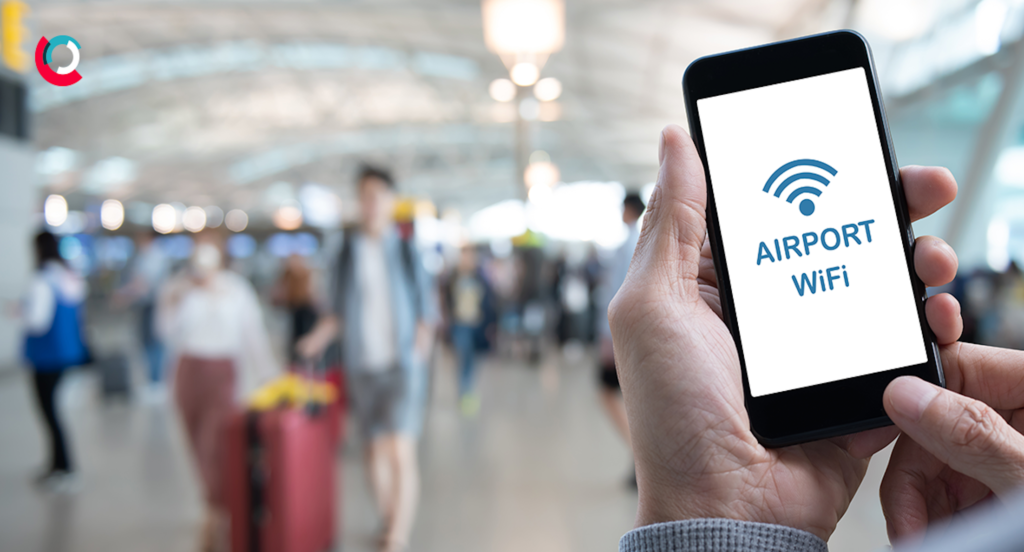By Lorena Peña
Travel intelligence can help you to anticipate and prevent a number of physical threats that can affect your business and leisure trips, but some risks come from cyberspace too. Digital security has become a vital issue for travellers, especially when at least half of the travelers connect to free Wi-Fi at airports. Protecting the critical information you handle on laptops and phones is crucial. In fact, most of these public networks available at airports can be less secure and could expose your data. Here’s how to avoid the risks that free Wi-fi at airports can cause.
Why free Wi-Fi at airports can be risky for travellers?
Wi-Fi is very convenient when spending a long time inside an airport or now that some airlines provide in-flight WIFI services, when it comes to public Wi-Fi networks or hotspots, verifying the safety of these is not always easy. However, if the free Wi-Fi doesn’t require an authentication like a password, it should be considered a red flag. According to a Forbes survey, out of the responders who had their information compromised while using public Wi-Fi, the highest percentage, 23%, reported it happened at an airport.
Which type of risks are you facing if connecting to a vulnerable network?
You could be exposed to identity and bank information theft, unauthorized access to your email/credentials, or malware from infected downloads. Even more complex cyber threats, like man-in-the-middle attacks that allow hackers to eavesdrop on communications or sniffing attacks, that can extract unprotected data.
Given these possible risks, tourists and especially business travellers using free Wi-Fi should be aware of how to protect sensitive information.
Here are Riskline’s tips on how to protect your devices:
- Use a VPN. Especially when traveling abroad, a VPN can secure all the sensitive data you send or receive over the Internet like banking transactions or flight itineraries and passport numbers.
- Update your antivirus software before your travel. Check that your software has the latest updates and perform a security assessment of your device in advance. Verify prior the departure that your antivirus works in your country of destination.
- Turn off your Wi-Fi and Bluetooth search. It could automatically link to an insecure network without your knowledge. Or even to another electronic device through which hackers could access your information.
- Double-check the official airport Wi-Fi network name. Hackers could create a false hotspot using the airport’s name by making slight orthographic changes, this method is called an “evil-twin attack”. To be sure, look for the official name at information points or ask an airport worker.
- Using your cellphone data connection or an ESim Card. If you are in a domestic airport, it is advisable to use your data connection by transforming your cellphone into a hotspot. Activating the roaming or buying a regular sim card is also a good option. Check with your local telephone operator, look for alternative service providers such as HolaFly or Airalo, that offer eSim cards (Check the list of supported phones), or take a look at the eSIMS website, which is a comparator for prepaid eSIM plans and providers.
Cyber-preparedness must be part of the routine when planning a trip. Especially as travellers are vulnerable to cyber risks when connecting to an insecure Wi-Fi network. However, following useful recommendations can prevent cyber threats from harming your travel experience.
Sources
https://travel.gc.ca/travelling/health-safety/cyber-safe/recommendations
https://www.businessinsider.com/guides/tech/is-airport-wifi-safe
https://www.thesun.co.uk/travel/22038222/airport-hack-wifi-evil-twin-holiday/
